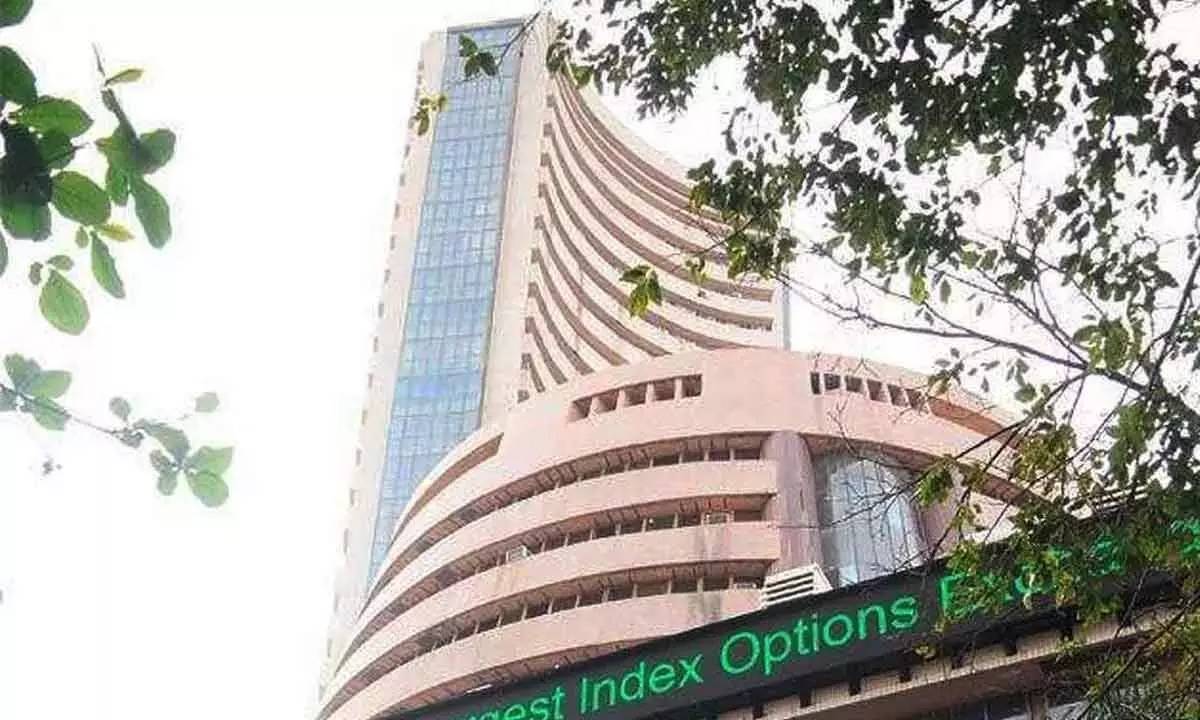Markets may stay highly stock-specific in near term

BSE Sensex
Among sectors, banking and FMCG look promising, while others may contribute selectively
On the back of interest rate hike by RBI, renewed FII selling, the BJP's victory in Gujarat and Congress win in Himachal Pradesh, falling crude oil prices, better than expected US PMI data and the jobs data and anticipation of rate hike by Fed in the coming week; the domestic market snapped the two-week upward momentum and lost one percent during the week ended. BSE Sensex fell 686.83 points or 1.09 percent to close at 62,181.67 and NSE Nifty shed 112.75 points or 1.06 percent to end at 18,496.6 levels.The Small-cap index lost one percent, while the Mid-cap index lost 0.8 percent.Among sectors, Nifty Information Technologies index shed 6 percent, Nifty Realty index fell 3.4 percent, while Nifty Energy, Pharma, and Media indices down two percent each. FIIs sold equities worth Rs4,305.97 crore, while DIIs pumped in Rs 3,712.08 crore.Indian rupee ended lower in the week ended December 9. It fell 96 paise to close at 82.27 per dollar against its December 2 closing of 81.31.
The RBI policy commentary indicates that the policy makers remained more uncertain about the inflation trajectory than the growth trajectory. RBI Governor stated that the worst of inflation is behind us, but the battle is not yet over. Analysts predict two more increases in the Repo rate by 25bps each – once in February and the other in April, to reach a terminal rate of 6.75 percent and hold at this level for an extended period. After the RBI interest rate hike announcement during the week ended, markets keenly await the outcome of the US Fed's decision on interest rate in coming week. More than the rate hike, investors would be more interested in knowing about the forward looking statement on inflation and rate decision going ahead. In the near term, markets will stay highly stock-specific and leadership limited to only certain pockets. Among sectors, Banking and FMCG look promising, while others may contribute selectively.
IPO Corner: The primary market is set to simmer next week with three public issues worth more than Rs1,800 crore. India's largest wine maker and seller Sula Vineyards will launch its initial public offering on December 12 with a price band of Rs340-357 per share. The second IPO to hit the Dalal Street will be Abans Holdings, a part of Abans Group, will also open for subscription on December 12 and close on December 15. The financial services company aims to raise Rs 345.60 crore through the issue of 1.28 crore shares. The price band for the offer is set at Rs 256-270 per share.Premium automotive retailer Landmark Cars with 112 outlets across eight states will float its maiden public issue on December 13 and the closing date will be December 15. The price band for the offer has been fixed at Rs481-506 per share. In the SME category, drone solutions provider Dronacharya Aerial Innovations will also open its initial public offering on December 13, and the offer will close on December 15.The price band for the offer is Rs52-54 per share. The company will raise nearly Rs34 crore by issuing 62.9 lakh shares through the IPO.
Listening Post: What China's Covid-19 Reopening Means for Markets.
Last week marked two years since the Covid-19 vaccination drive began, yet several countries including USA and the world economy continue to be dominated by issues created by the pandemic. The uncertainty is about to get worse, as China starts the joy, pain and eventual catharsis of reopening. Markets have been betting on the short-term benefits of reopening since rumours of the policy change began. The Chinese currency renminbi has enjoyed its best five-week gain against the dollar since internationalization in 1994 and domestic stocks jumped about 10%. The danger is a repeat of the economic, financial and political swings that created a boom-bust cycle in the rest of the world. There are three reasons to think China's economy may be less vulnerable to the troubles that hit the rest of the world. But that doesn't make the country's stocks the obvious bargain many think. Nor does it mean that China's reopening won't be disruptive to the rest of the world. First, China hasn't had the government stimulus that supported the post-lockdown rebounds in the US, Europe and many other nations underpinned red-hot jobs markets and inflation. Because households don't have stimulus checks burning holes in their pockets, the rebound is likely to be less strong. On top of that, the recovery in demand is unlikely to be sudden, as China is reopening more cautiously than elsewhere—not least because few people have immunity to the virus. As Covid spreads and hospitals fill up, consumers may stay cautious even if governments don't reimpose lockdowns. Second, and relatedly, China has plenty of spare capacity in the economy to expand services that do see a spike in demand, thanks to high youth unemployment and damage to small businesses. Global pressures will probably be less severe, too, as China's reopening comes as growth in the rest of the world is slowing, which is likely to ease pressure on oil prices and other essential imports. Third, there is unlikely to be a repeat of the US experience of opting out of the workforce that worsened the shortage of people available to fill jobs. Many investors have focused on China being unloved, which is usually a good sign. MSCI's measure of domestic stocks trades at 12 times forecast 12-month earnings, against 18 times for the US, even after the recent gains. Against that, the sheer scale of the unexpected swings in goods, services and asset prices experienced across the world should make us wary of predictions for China's recovery. Whether it was the slide in oil prices from briefly negative to above $120 a barrel, the quintupling and fall in shipping rates and lumber futures, or the bubble-that-popped in lossmaking technology stocks, these swings all came as a surprise. Worse, China may deserve its discount to the US, much of which is caused not by concern about Covid policy, but by fears about geo-politics, the lack of rule of law and the structural problem of its imploding housing developers. While China's valuations have fallen a lot, they are almost exactly in line with where they stood before the pandemic, as is the discount to the US.
On the face of it, the opening up of the world's second-biggest economy is good for stocks everywhere, pushing up demand and removing restrictions on supply. But adding to global demand—especially in oil—makes it even harder for central banks elsewhere trying to cool their economies. China's reopening may be less messy than the West's, but has plenty of potential to disrupt.
Quote of the week: "The stock market is filled with individuals who know the price of everything, but the value of nothing." –Phillip Fisher
That is another testament to the fact that investing without an education and research will ultimately lead to regrettable investment decisions. Research is much more than just listening to popular opinion.








